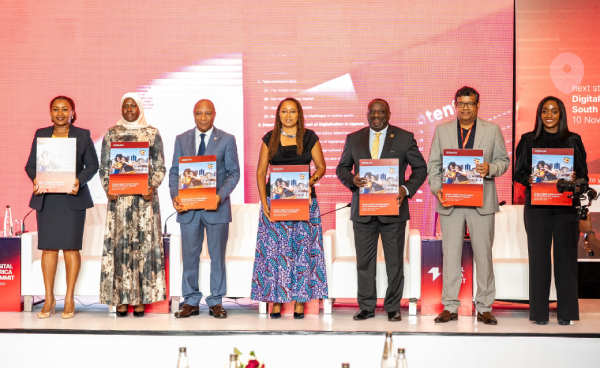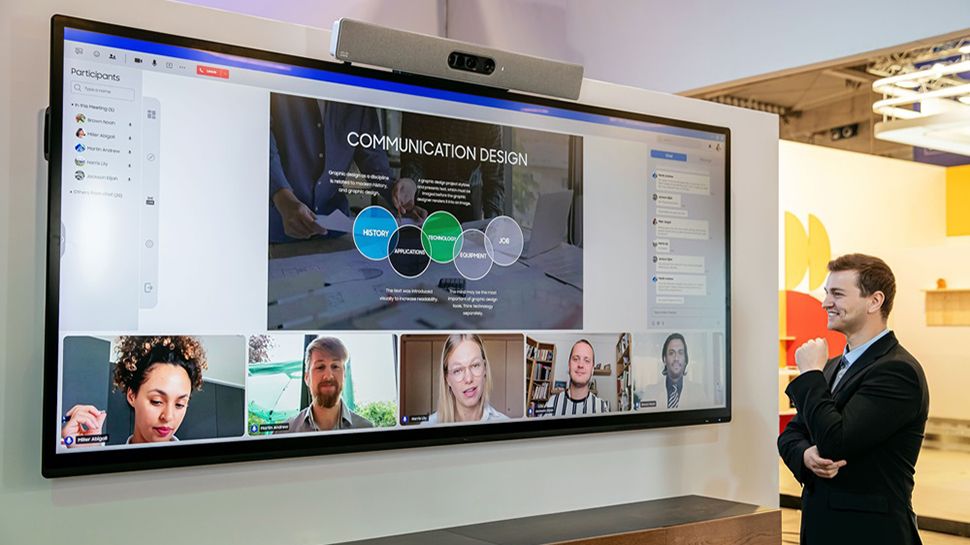November 3, 2025, Kampala: Launched today at the GSMA Digital Africa Summit in Uganda, a new GSMA report reveals that with the right digital reforms, Uganda could get online 4 million more citizens onlinecreate 1.79 million new jobsand generate UGX 14.6 trillion in additional economic value by 2030.
Noble Driving the digital transformation of the economy in Uganda: opportunities, policy reforms and the role of mobile telephonyThe report outlines how collaborative policy action can accelerate inclusive growth and ensure that all Ugandans benefit from the digital economy envisioned in the National Development Plan IV (NDP IV) and Digital Uganda Vision 2040 (DUV).
Driving Uganda's prosperity through digital inclusion
Uganda's mobile sector is a cornerstone of the country's digital transformation: connecting people to education, healthcare and financial services, and creating new opportunities for entrepreneurs in both urban and rural communities. It also provides the digital backbone for growth in key sectors such as agriculture, tourism, manufacturing and services.
According to Uganda's Digital Transformation Roadmap, the ICT industry contributes 9% to the national GDP, employs over 2.3 million Ugandans and continues to expand at an impressive annual rate of 14.8%.
GSMA analysis shows that Uganda now has 96% 4G population coverage and 11.46 million unique mobile internet users, equivalent to 22% of the total population and 48% of adults. This progress supports the country's NDP IV 2030 goals of achieving 70% national broadband coverage and 45% internet usage.
However, three in four Ugandans living within mobile broadband coverage still do not use it, a usage gap driven by barriers such as the high cost of basic smartphones, unreliable power supplies, sectoral taxes that impact affordability and limited digital skills. Overcoming these challenges is vital to ensuring that all Ugandans can connect, participate and thrive in the country's digital future.
Unlocking the next phase of Uganda's digital transformation
Uganda has already laid strong foundations for its digital economy, with clear strategies under the NDP IV, DUV and roadmap. The GSMA notes that the country's policy direction is well aligned with its ambitions, but reaching the next stage of digital adoption will require greater policy predictability, affordable access and long-term investment in innovation and skills.
The report calls for a renewed partnership between government, industry and development partners to ensure that all Ugandans can benefit from digital progress. This collaboration focuses on five priority reforms designed to expand connectivity, improve inclusion and strengthen Uganda's long-term competitiveness in the digital age.
Five priorities to empower citizens and grow the digital economy
The GSMA calls for a people-centred policy framework that promotes affordability, innovation and digital skills. Five key proposed priorities would help Uganda achieve its NDP IV and DUV goals:
- Create a stable investment environment: Modify the coverage obligation requirements in the National Telecommunications Operator license from 5 years to 20 years and a phased investment implementation program agreed with operators, review signal strength measurements and formally designate telecommunications infrastructure as Critical National Infrastructure to address energy supply and infrastructure security.
- Accelerate the use of digital technology to increase domestic revenue mobilization and optimize taxation to increase digital affordability and inclusion: Eliminate the 12% excise tax on data services, parity mobile money with withdrawal levies on electronic transactions (0.5%) and exempt advanced telecommunications equipment and services (e.g. 4G and 5G) from the 18% VAT on imported services.
- Implement measures on entry-level smartphone affordability and other demand-side reforms: Eliminate taxes on entry-level smartphones, accelerate the Digital Skills Framework, cybersecurity and use integrated solutions and APIs to increase digital adoption.
- Strengthen coordination in energy and infrastructure: Implement a joint ICT-Energy master plan to ensure reliable energy supply and encourage renewable energy solutions.
- Modernize regulation for digital: Update the regulatory framework, including the National AI Strategy and digital policies such as cloud and data localization and cross-border transfer.
Achieve shared prosperity
According to the GSMA model, the implementation of these reforms by 2030 could:
- Expand coverage: Expand 4G population coverage from 96% to 99%, something that can be achieved with an investment of only $10 million, compared to the current $550 million required under existing policy conditions.
- Boost connectivity: Connect an additional 4 million Ugandans to the internet, reaching 19 million users in total (32% of the population and 61% of adults), and reduce the usage gap by 7%.
- Boost economic growth: Create 1.79 million new jobsadd UGX 14.6 trillion economic valueand generate UGX 2.1 trillion in additional tax revenue through greater digitalization in key sectors, including agriculture, manufacturing, trade, transport and public services.
- Enable sustainable tax gains: Greater use of mobile data in all sectors could contribute UGX 3.1 trillion in additional tax revenue, far exceeding estimates UGX 370 billion loss due to reduced taxes on the mobile sector, providing the government with more resources to reinvest in national priorities.
Angela Wamola, GSMA Africa Directorsaying “Uganda's digital transformation is about people: enabling every citizen, entrepreneur and community to thrive in a connected economy. By making access more affordable and policies more predictable, Uganda can ensure that digital progress benefits everyone.”.”
-ENDS-
About the GSMA
The GSMA is a global organization that unifies the mobile ecosystem to discover, develop and deliver critical innovation for positive business environments and social change. Our vision is to unlock the full power of connectivity so that people, industry and society thrive. Representing mobile operators and organizations across the mobile ecosystem and adjacent industries, the GSMA offers its members three broad pillars: connectivity for good, industry services and solutions, and outreach. This activity includes advancing policy, addressing today's biggest societal challenges, supporting the technology and interoperability that make mobile devices work, and providing the world's largest platform to convene the mobile ecosystem at the MWC and M360 series of events.
We invite you to learn more at www.gsma.com.
Media contacts
GSMA Press Office
[email protected]









